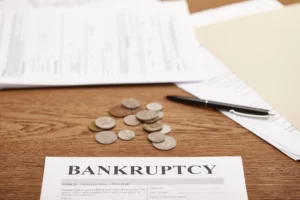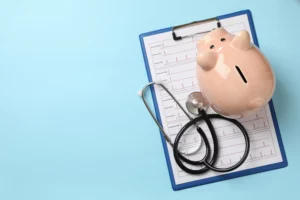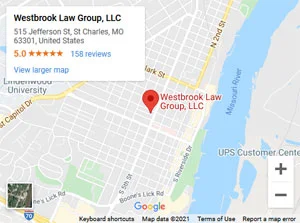The most common types of consumer bankruptcies filed are Chapter 7 or Chapter 13 bankruptcies. Chapter 7 bankruptcies are also known as liquidation bankruptcies, under which a consumer’s non-exempt assets are liquidated and the proceeds used to pay off creditors. Most unsecured debts that are unable to be paid after the liquidation are discharged, and the debtor has a clean slate (aside from the bankruptcy appearing on his or her credit report). In contrast, a Chapter 13 bankruptcy is a reorganization proceeding, in which an income-receiving debtor’s debts are reorganized and the debtor must follow a court-approved repayment plan.
In 2005, the United States significantly changed the bankruptcy code and implemented a “means test,” through which it is determined what type of bankruptcy a debtor may file. It is designed to keep debtors with higher incomes from filing Chapter 7 and having their debts discharged. Fortunately for debtors, one may still have a high monthly income provided that the debtor also has significantly monthly expenses. Fundamentally, the test deducts specific monthly expenses from a debtor’s current monthly income to arrive at a monthly disposable income figure. The higher this figure is, the more likely it is that a debtor will not be able to file a Chapter 7 bankruptcy.
How does the means test work?
In order to figure out whether you are eligible to file a Chapter 7 Bankruptcy, you must first determine whether your income is less than the median income for a household your size in your state. If it is not, that is the end of the inquiry. People with incomes less than the state income median may file for Chapter 7 bankruptcy, regardless of other factors. A chart with median income standards for Missouri can be found here.
If your household income does exceed the state median, the determination becomes much more complicated. To determine your disposable monthly income, you start with your total monthly income and subtract “allowed” monthly expenses. If your disposable income adds up to more than a specified amount, you will not be able to file a Chapter 7 bankruptcy.
Call an experienced St. Louis bankruptcy attorney today for a free consultation
In order to determine whether you are eligible for a Chapter 7 bankruptcy, it is best to have an experienced bankruptcy attorney review your situation and make a recommendation as to how to proceed. The attorneys of The Westbrook Law Group practice exclusively in the area of bankruptcy law, and have helped hundreds of people regain their financial footing. We are conveniently located in downtown St. Charles, and also serve the greater St. Louis area. We offer free consultations, and evening and weekend appointments are available upon request. To schedule a consultation with an experienced St. Louis bankruptcy attorney, call us today at (636) 493-9231, or fill out our online contact form available to the right, and a member of our staff will be in touch with you shortly.






